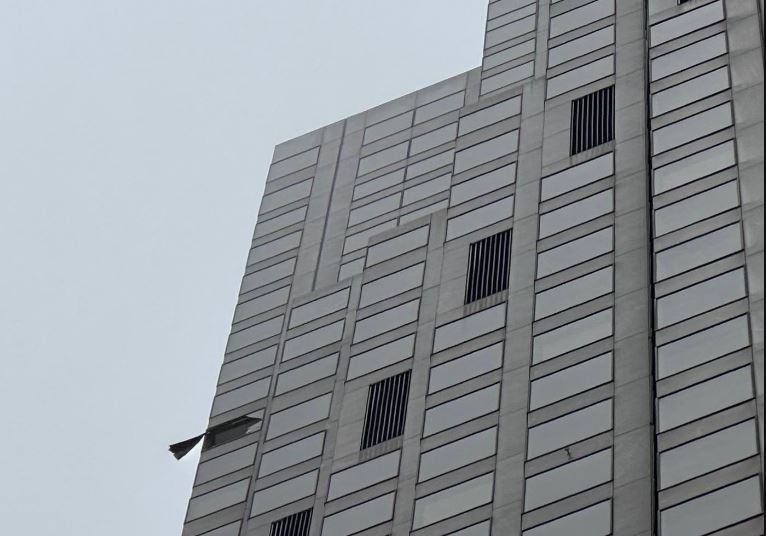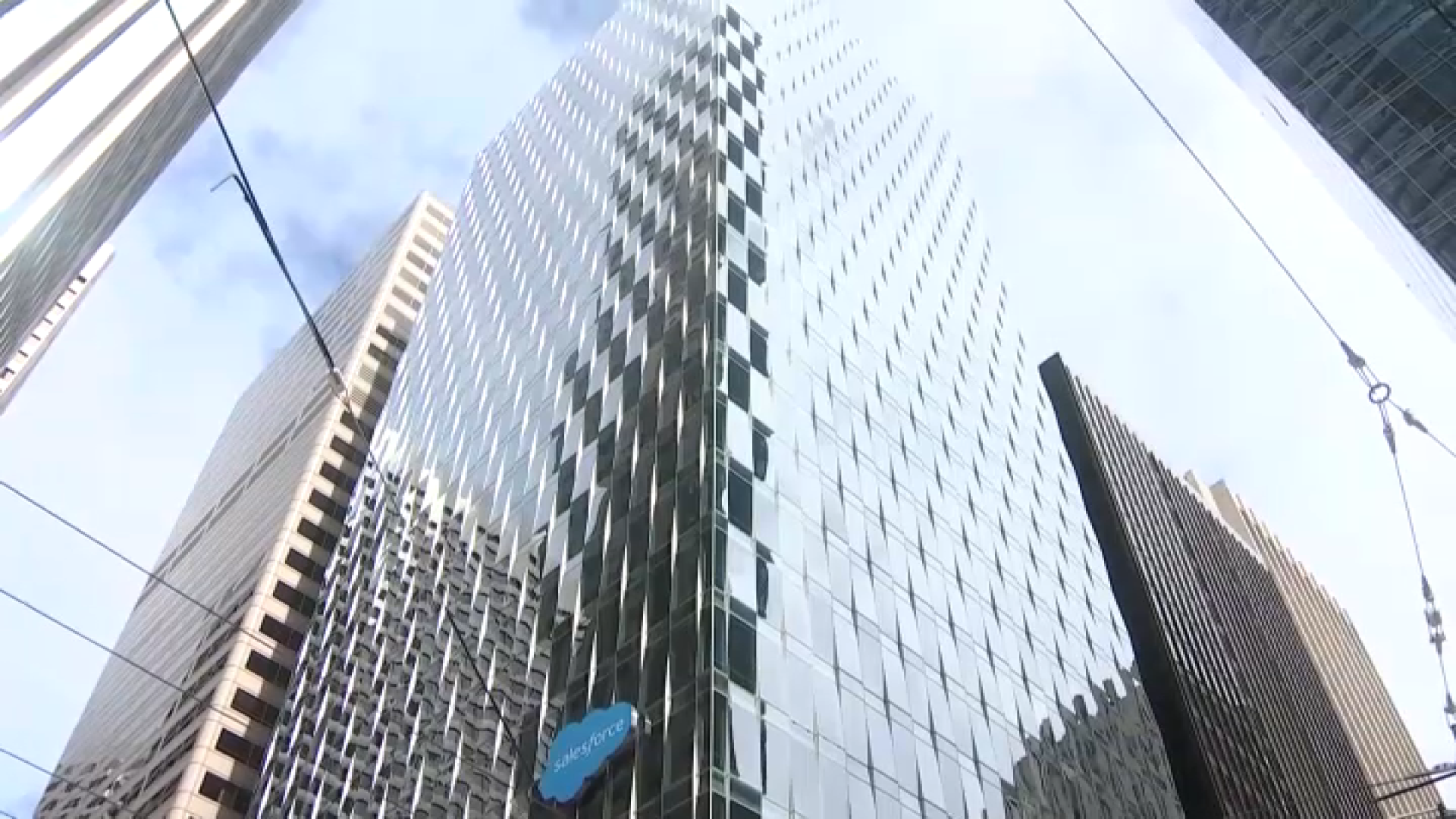A 15-story residential building – one of six San Francisco high-rises where windows broke last month in high winds -- had a history of prior failures that prompted homeowners to sue the window supplier for allegedly providing faulty windows prone to shatter unexpectedly, NBC Bay Area has learned.
Sometime in the evening of March 21, a window on the fifth floor of the 1400 Mission Street building failed on the Jessie Street side, prompting city officials to cite the owners and order a complete window inspection to assure safety. While the cause of that failure is still being investigated, it apparently wasn’t the first window to suddenly fail at the building.
San Francisco court documents show that back in 2019, the Building Homeowners Association sued the window supplier for allegedly providing “defective and dangerous to the residents of the 1400 Mission development, to passersby on the streets below, and the general public.”
Attorneys in the suit declined to comment, citing the terms of a confidential legal settlement back in 2020.
Bill Thomas, a 42-year glass industry veteran and consultant, served as the expert consultant for the plaintiffs in that case. He worries about the risk to the public from all the recent failures across the city. “It scares the hell out of me,” he said.
As for the 1400 Mission Street project, a 15-story high-rise completed in 2015, Thomas says he examined the remains of eight windows that had previously shattered. All of them, according to the suit, were tempered glass, which normally shatters into harmless pieces.
But the lawsuit notes the 1400 Mission Street windows were separately treated with a bluish ceramic coating to limit visibility. That ceramic coating allegedly acted to bond fractured pieces into larger chunks.
“That kept all the little pieces of glass together,” Thomas said, “and if that it hit somebody, it would kill.”
According to the lawsuit, the windows that failed exhibited a “butterfly” pattern of breakage, which is allegedly a telltale sign of an invisible contaminant embedded in the glass panes during manufacturing.
Get a weekly recap of the latest San Francisco Bay Area housing news. Sign up for NBC Bay Area’s Housing Deconstructed newsletter.
Thomas said the failure last month had one difference. It was on the street side of the building, not the inner courtyard where the other failures he studied had occurred.
“I was always concerned about the Mission Street side and the Jessie Street side,” he said.
While some problems are invisible, Thomas says, most others can be spotted with detailed inspections. But it takes training, expertise, and above all, time, to inspect every window. He says a typical inspection of a so-called curtain wall system, where windows are tied in to an aluminum frame, would be done using a window-washing rig suspended from the outside of the building.
But San Francisco has not been requiring any curtain wall inspections for new buildings for years. City code specifically exempts high-rises built after 1998 for the first 30 years after construction – including 1400 Mission Street and two other newer high-rises that suffered window failures.
“That's what drives me crazy about curtain wall,” Thomas said. “It's so unregulated and it can be extraordinarily dangerous.”
“There is no question that this is urgent,” said Board of Supervisors President Aaron Peskin, who has introduced legislation that would eliminate the city’s inspection exemption for 71 of its newest and tallest buildings.
Peskin wants to force all 71 to get window inspections by November. “The miracle here is that nobody was seriously injured or killed,” he said, “even though San Francisco's downtown is less crowded than it was before the pandemic, there's still plenty of folks right outside of this door.”
But doing that many inspections, that quickly, will be a tall order, says Thomas.
“They’re giving you, you know, eight, nine months to do all of this by November? You're never going to get quality people on the building in that amount of time,” he said. “It's going to take a longer amount of time.”
Peskin says a key first step is getting back just the inspection reports on the six buildings where windows failed last month.
“I wanted these reports yesterday,’’ he said. “I want to know what's in them.”



